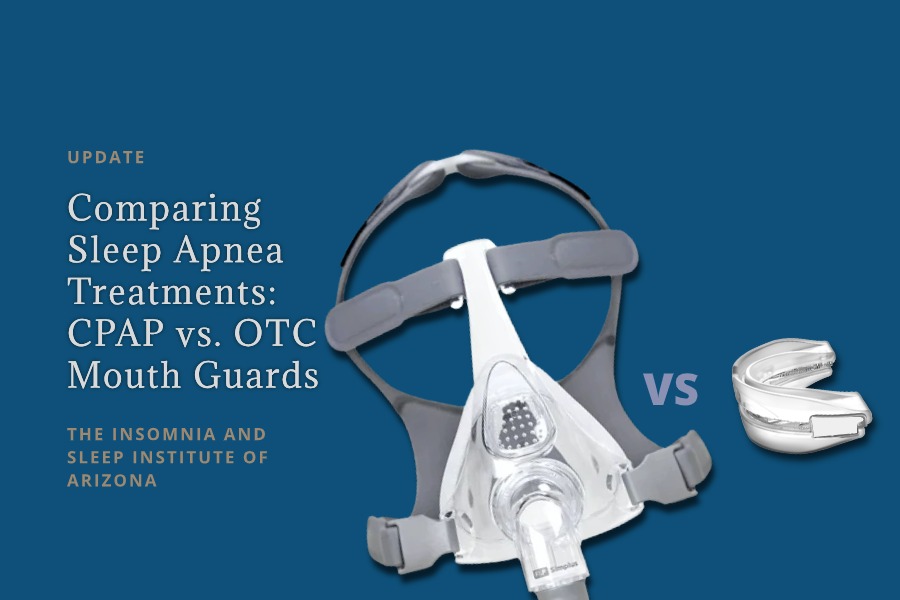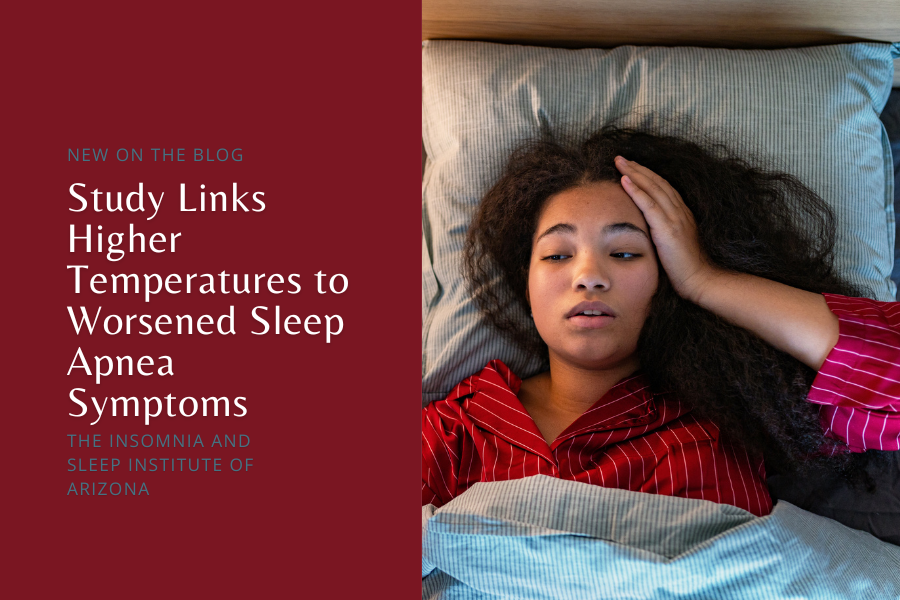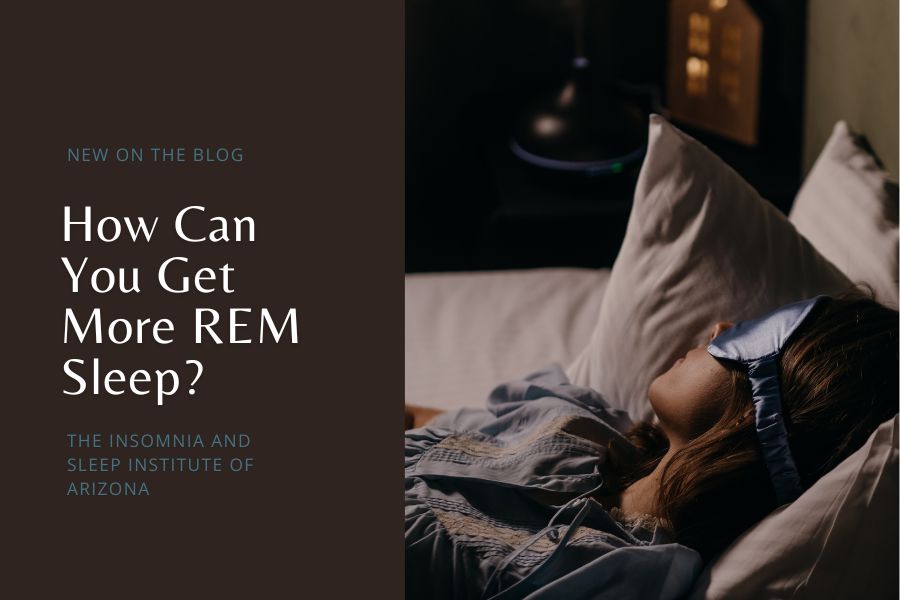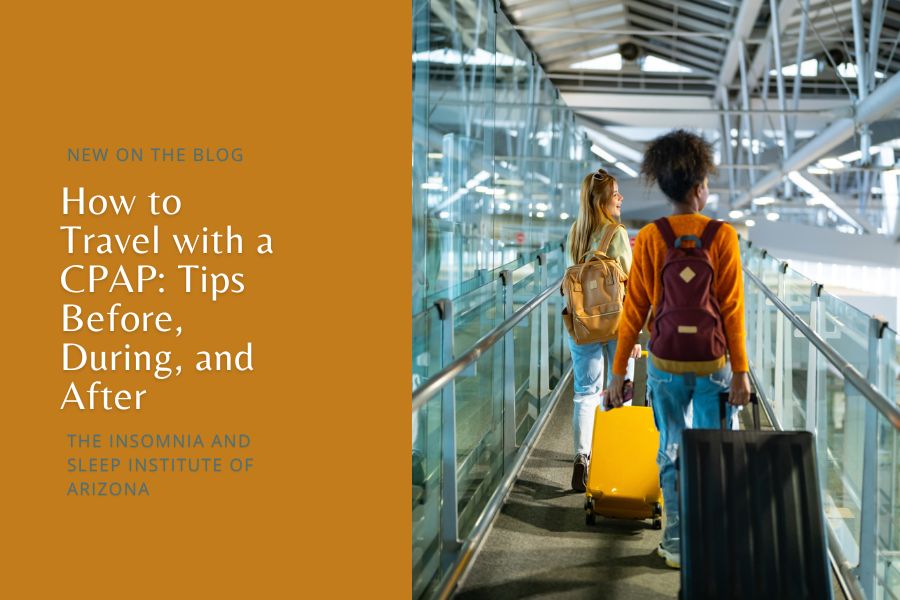Sleep apnea is not only an inconvenience but can also be deadly. If left untreated, sleep apnea can lead to serious health complications, including high blood pressure, heart disease, stroke, and type 2 diabetes. It also disrupts sleep, causing chronic fatigue, mood disorders, and impaired cognitive function, which can severely affect daily life and increase the risk of accidents. By our estimates, sleep apnea affects close to 40 million American adults. It’s no wonder that people are scouring the internet looking for potential treatments. As one would expect, the effectiveness of available treatments can vary substantially from one product or treatment to the next.
In what follows we take a look at mouth guards sold for a low price over the counter and compare them with CPAP therapy, which has been the gold standard for treating sleep apnea for many years.
OTC Mouth Guards for Treating Snoring and Sleep Apnea
There has been a proliferation of over-the-counter (OTC) oral appliances aimed at reducing symptoms of sleep apnea, snoring and bruxism (teeth grinding) during sleep. Some popular devices include ApneaRX, specifically for sleep apnea, and Zquiet for snoring. Many people are turning to over-the-counter (OTC) oral devices for sleep apnea because they cost less and seem to be more convenient than CPAP machines or custom-fitted oral appliances from a dentist. OTC devices are easy to purchase without a prescription and offer a seemingly simple, non-invasive solution. Additionally, some individuals may be looking for alternatives to CPAP due to the discomfort or inconvenience associated with wearing a mask at night, leading them to explore OTC options. But are they effective? Are they safe? Do they have side effects? These are all very good questions that unfortunately often don’t have clear answers.
FDA “Approval” of OTC Mouthpieces
It would seem that FDA approval would indicate the safety and effectiveness of a product, and in many cases that’s true. In the case of OTC mouth guards, however, FDA “approval,” as the term is used by device makers, has a different meaning. Although many device makers may claim that their device is FDA approved, what they usually mean to say is that their device is exempt from FDA review because it is functionally similar to devices already on the market. This does not mean that the FDA has reviewed each device’s effectiveness. It merely means it is legal for the manufacturer to sell the oral device because it is presumed to be relatively safe. Any claims of FDA approval should be taken with a grain of salt.
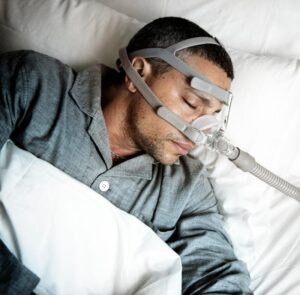 How do OTC Mouth Guards Compare with CPAP?
How do OTC Mouth Guards Compare with CPAP?
CPAP (continuous positive airway pressure) has long been the gold standard treatment for sleep apnea. It has been proven in countless scientific studies and sleep labs all over the world to effectively reduce occurrences of sleep apnea. On the other hand, the claims of OTC oral devices are impossible to verify due to deceptive marketing practices and a lack of peer-reviewed scientific research. We can’t rule out the possibility that the devices work for some people but in most cases, we lack evidence that they do. It’s also not completely clear how safe they are and what the risk is of damage to the teeth, gums, and jaw from using one of these various devices.
OTC Mouth Guard or an Oral Appliance from a Sleep Dentist
Sleep dentists offer a prescription oral appliance (a.k.a., mandibular advancement device (MAD) that differs substantially from what’s available over the counter. These devices are custom-made and fitted to the individual patient. They are adjustable. These are important characteristics to getting the fit right. If the fit is not right, a lot of negative consequences can occur such as mouth sores, damage to teeth and gums and jaw pain. We often work with local sleep dentists that are trained in dental sleep medicine and help them test their patients for sleep apnea with and without their oral appliances. When fabricated by a sleep dentist, oral appliances can reduce sleep apnea occurrences for many patients who suffer from mild to moderate sleep apnea. Using a sleep dentist is preferred over OTC devices and keep in mind that the custom fabricated oral appliances actually require a prescription from your sleep physician.
Finding the Best Treatment for Your Sleep Apnea
We recommend you visit a board-certified sleep physician and get tested in a sleep lab to know what sleep disorder(s) you suffer from and what are your treatment options. Proper diagnosis is always the first step. If you do have obstructive sleep apnea (OSA), a common ailment, CPAP is usually recommended. Dentist-custom fabricated oral appliances may work for some patients with mild or moderate sleep apnea but it is important to ensure that follow up sleep testing is performed with the appliance to confirm effectiveness as too many inexperienced dentists will often tell their patient that since snoring is resolved your sleep apnea is likely resolved as well. It is critical to allow the sleep physician managing your sleep apnea reassess the effectiveness of the appliance. Please remember that sleep apnea is a MEDICAL condition and NOT A DENTAL condition and thus the sleep physician should always be the one to determine if your sleep apnea is well controlled as they are the ones that are medically trained to understand sleep apnea. Another alternative for people who have difficulty adapting to CPAP is the Inspire implant. Inspire, a surgically implanted device, uses electrical signals to trigger the tongue to move out of the way during breathing.
Dr. Ruchir P. Patel Shares His Own Personal CPAP Journey
In this short teaser from the Dr. Ruchir P. Patel: The Real Sleep Doc podcast, Dr. Patel opens up about his own experience with CPAP therapy. Listen to the rest of the episode here.
Stay tuned for more insights in upcoming episodes!
